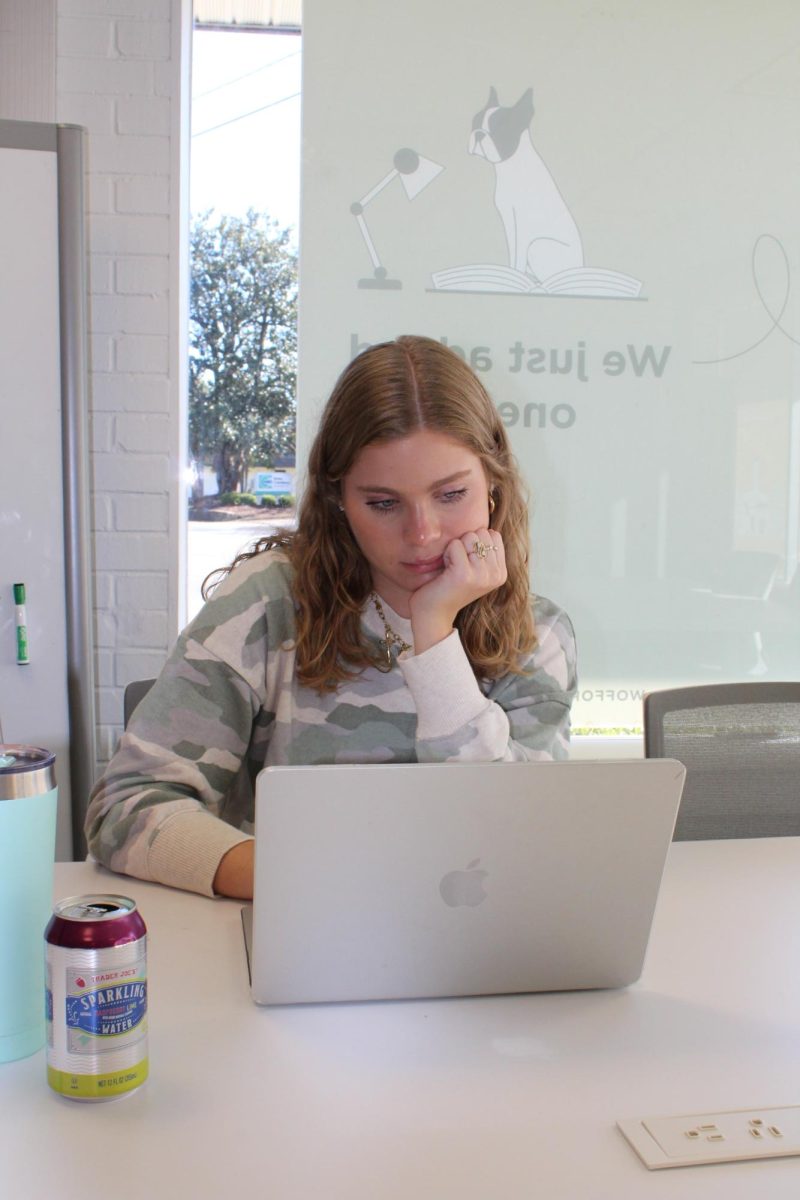Members of the Wofford community have repeatedly questioned accessibility at Wofford and sought more from the college in terms of making the campus more accessible for people who require accommodations.
Injured students and students with more long-term physical disabilities are more likely to find themselves at Wofford as the college accepts more students and enrolls more student athletes. Consequently, Wofford now needs to invest in plans to make the campus more accessible for all students.
Students who have recently experienced leg injuries have reported that navigating Wofford can be challenging, given that the majority of the campus is only accessible by foot and can be hard to maneuver by car.
Wofford is also a historic campus with several buildings built before President George H.W. Bush signed the Americans with Disabilities Act (ADA) into law on July 26, 1990.
Since its passage, the ADA has outlawed discrimination based on disability in employment, state and local government, public accommodations, commercial facilities, transportation and telecommunications.
Despite Wofford’s efforts to bring all of its historic buildings up to ADA standards by installing ramps and elevators, students still have difficulty navigating the campus.
Jackie Carman ‘22, who tore her ACL her first year at Wofford, discussed her problems navigating the campus and the accommodations she had to make to improve her experience. Carman had to be moved to another resident hall for the duration of her first year because she lived on the fourth level of Marsh Hall, which does not have an elevator.
“Reslife was a huge help in this regard, they provided me with a room on the first floor of Dupre and this is because of the lack of elevators in the freshman dormitories,” Carman said. “Rides from campus safety were helpful as well, however, they tended to be a bit slow, so I would need to call about an hour prior.”
Students can contact Campus Safety and officers will arrange rides to and from their residence halls or academic buildings.
However, Campus Safety officers have other responsibilities and cannot always be accessible for students who require transportation. Some students have chosen to drive themselves around campus because they understand that Campus Safety may not always be able to get them to the destinations they require in a timely manner.
Carman is content with the assistance she received during her injury, despite some minor difficulties in obtaining a ride from campus safety officers.
“I believe that naturally Wofford is better than other colleges. This is because of the intimate size of the college along with the sense of community I am able to call specific officers for rides as well as contacting reslife for another room,” said Carman. “Besides that, I believe that Wofford could put more effort into being accessible.”
Ellis Goodwin ‘22 ruptured his achilles tendon in May 2021 and had to navigate campus with a boot and a medical Knee Walker Scooter by the start of First Year Orientation week. This had a significant impact on his return to campus and he had to stay relatively sedentary because too much activity on his healing achilles would induce swelling and extra pain.
Goodwin avoided going out throughout his recovery because some of his peers did not take his injury seriously, but he also felt he could not go out and socialize because several campus activities were not accessible.
Students who have had to heal from an injury while on campus have a lot of additional burdens and anxieties. Goodwin explained that he gained a better understanding of what ableism is and how it affects the lives of others with more permanent long-term disabilities.
“As a student body, as a campus, as citizens, we should also consider what a disabled person has to go through and what they will go through in the future,” Goodwin said. “It’s very often that we forget how lucky we are to have two hands, two legs, two functioning eyes, one functioning brain, and a lot of people don’t have that in this world. So, we definitely should be grateful for all that we are given.”
The college’s facilities department is constantly working to improve accessibility on campus. A company is brought in once a year to inspect campus sidewalks and look for any shifts to determine if repairs are necessary or if a sidewalk should be replaced.
Renovations on campus, including Burwell Dining Hall, necessitate grade readjustments to better accommodate people and satisfy ADA requirements. Plans to upgrade Cummings and Evins Streets are also in the works this summer.
Better accommodations are always needed on campus, and obtaining them may require collaboration between students and the college.Students should contact Perry Henson and Sandra Hammett of Wofford’s Office of Accessibility Services if they require or have any suggestions for accessibility improvements on campus.
























